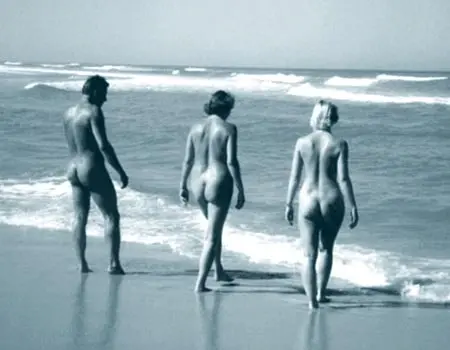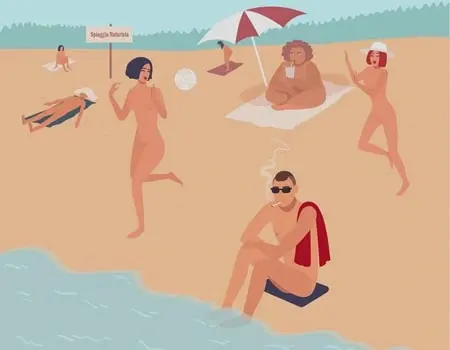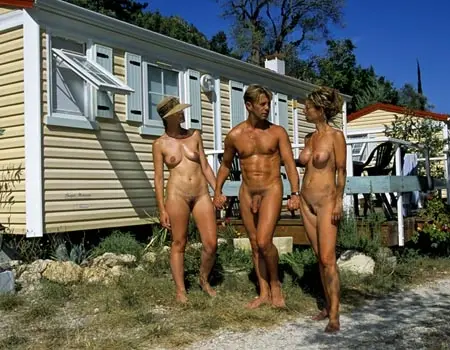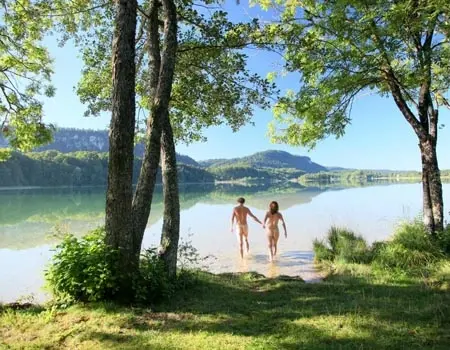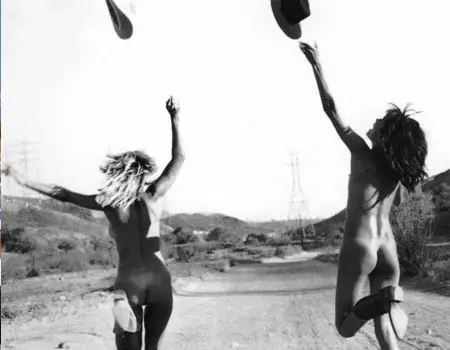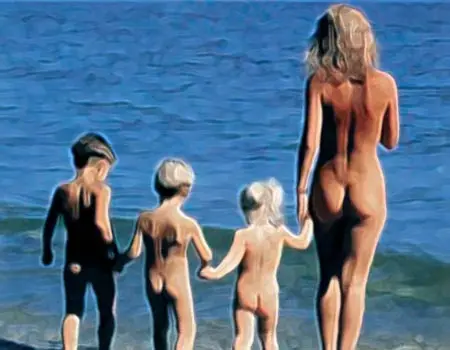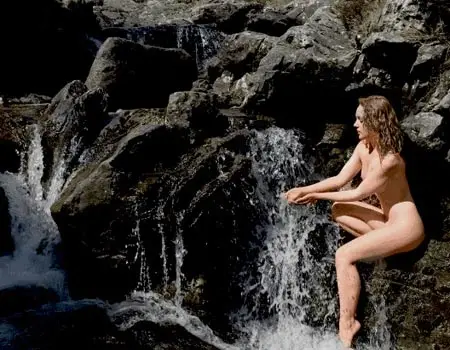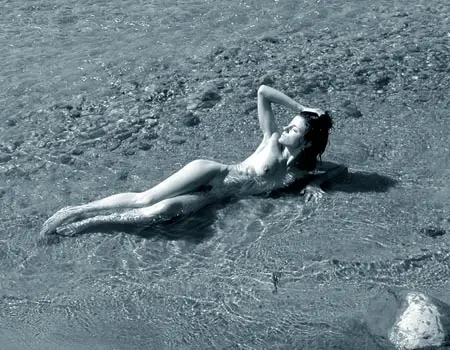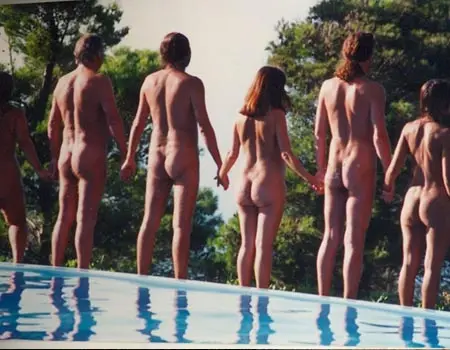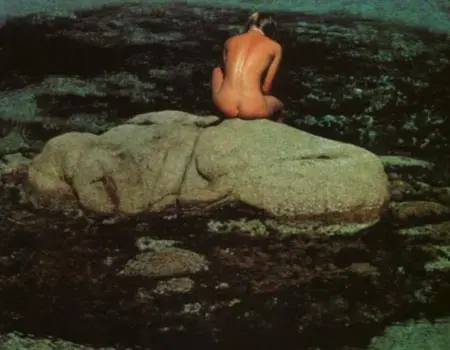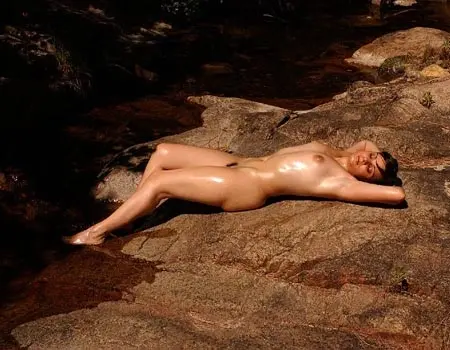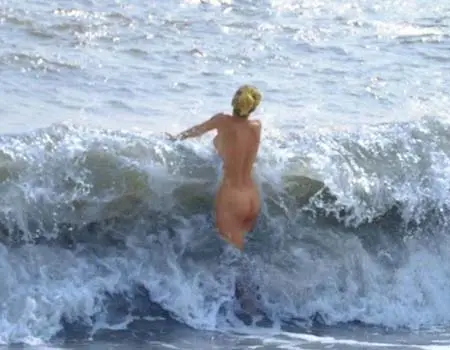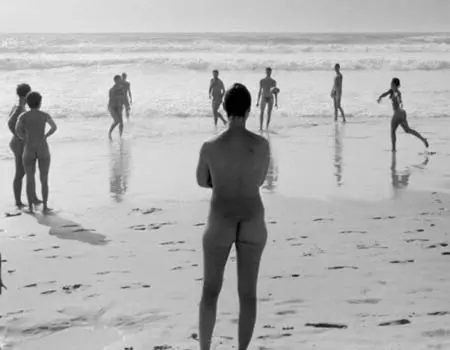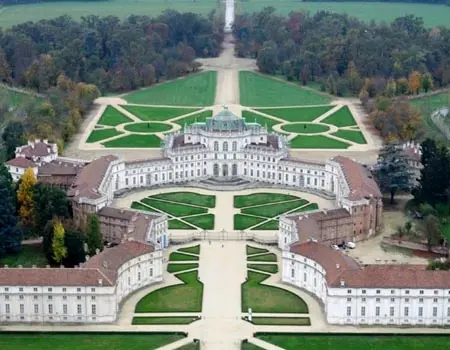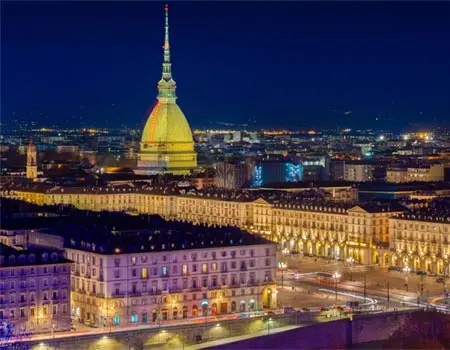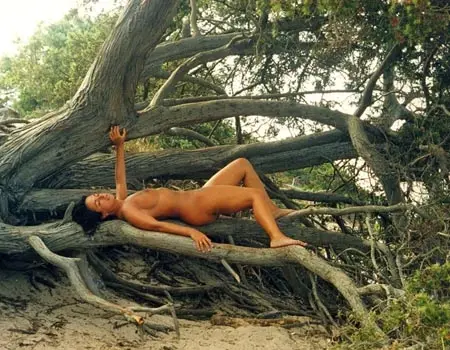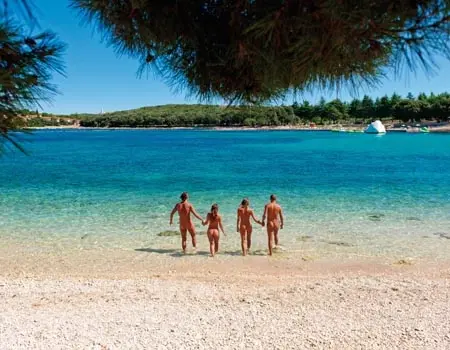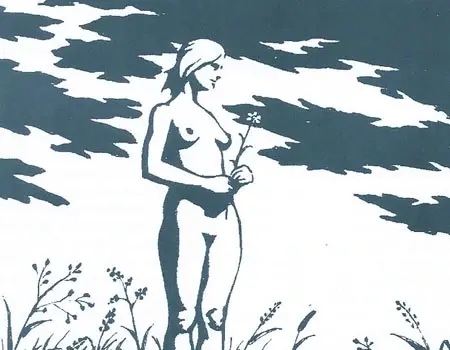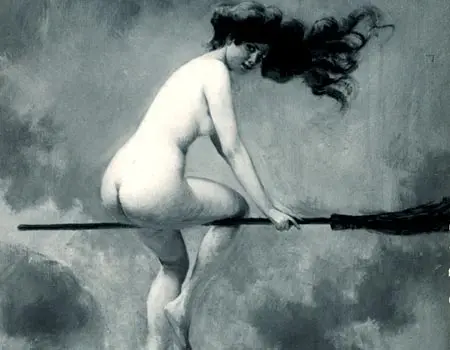Nudism: Ecstasy or exaltation?
I spoke to a couple of naturist friends last summer about nudism.
They said it gives them not only a sense of physical well-being but also an intense inner joy. They also posed the question as to whether naturism should be considered a form of ecstasy or exaltation, or both. To answer this question we need to define the terms.
They said it gives them not only a sense of physical well-being but also an intense inner joy. They also posed the question as to whether naturism should be considered a form of ecstasy or exaltation, or both. To answer this question we need to define the terms.
To speak of ecstasy and exaltation in reference to naturism we need fo go back to the time of the ancient Greeks for whom ecstasy and exaltation were forms of communication. Summarizing their philosophy and transferring it to modern times, we can say that ecstasy allows you go outside yourself, whereas exaltation allows you to communicate directly with the divine.
Every religion, we ali know, is a method to explain the universe, the world, life itself. We also know that most followers of any religion are usually not consciously aware of this and consequently their participation in the ritual is merely imitative. For the most part they are unaware of the fact that the purpose of religion is to allow individuals to communicate with the creatingforce.
Now, if we applied this concept to naturism and defined it as a form ofboth ecstasy and exaltation, it wouldfollow that naturism is a religion. But it is not so. Let's see why.
The monotheistic religions of Western society have always been allergie to erotic manifestations (which have always been harshly condemned and attacked by every means possible).
Unfortunately, nudism was also seen as an ero tic manifestation.
Naturism, with its peculiar characteristic of practicing total nudity regardless of sex or age is obviously not an erotic manifestation. Nonetheless many people, even in our day, erroneously believe il is.
They mistake the cultural approach with the basic idea and centrai principle of our movement.
In fact nudity is flaunted around by the mass media and "spread" throughout allieveis of society but in actuality il is shrewdly rationed out to maintain a high-Ievel of artificiallibido in males repressed by the cIothing constraint.
On the other hand, it has been observed that the rituals of religions in other cultural areas are permeated wilh sensuality and sexuality. Naturism, as Marc-Alain Decamps writes, has gone beyond the historical phase oftotemism, during which man transferred and profected his reverence onto animals and things, and fetishism (adoring the clothing created by man, who then remained the victim of his own creation) to finally arrived at nudism.
In this third phase humans take off their clothes, but do not abolish them because they are useful when needed) and was able to remain completely naked without shame.
Consequently, when we naturists say that naturism was born with the human race, it was not invented by modern mano We say this not with the presumption of being the repositories of an absolute truth but because the study of prehistory and early history prove it.
For example, initially it was believed that man appeared on the earth approximately 700.000-800.000 years ago.
Now anthropologists, according to recent studies, are telling us that man is one million years old. If this is true it would explain and clarifY once and for all the reason why naturists assert that naturism is neither a conquest nor a discovery but the recovery of an identity lost in the mists of time.
A time when humans /ived in a state of natural symbiosis with nature, a period that was extremely long according to anthropologists, ifwe consider that environmental pollution has a relatively short history when compared to the millions of years of the human history.
Therefore naturism is neither ecstasy nor exaltation, though both of these can be induced by the state of nudity. Nudity is a state and also a condition that allows a cathartic process that makes pure and natural that which many cultures considered dirty.
Ecstasy nor exaltation, though the product of particular moods, are the result of emotional alterations unconsciously aimed toward a goal: naturism is not an alteration but a balance, the balance we naturists express by "living in harmony with nature, with ourselves and each other", as stated in the definition elaborated at the XIV Congress of the International Naturist Federation held in France at Agde in 1974.
Every religion, we ali know, is a method to explain the universe, the world, life itself. We also know that most followers of any religion are usually not consciously aware of this and consequently their participation in the ritual is merely imitative. For the most part they are unaware of the fact that the purpose of religion is to allow individuals to communicate with the creatingforce.
Now, if we applied this concept to naturism and defined it as a form ofboth ecstasy and exaltation, it wouldfollow that naturism is a religion. But it is not so. Let's see why.
The monotheistic religions of Western society have always been allergie to erotic manifestations (which have always been harshly condemned and attacked by every means possible).
Unfortunately, nudism was also seen as an ero tic manifestation.
Naturism, with its peculiar characteristic of practicing total nudity regardless of sex or age is obviously not an erotic manifestation. Nonetheless many people, even in our day, erroneously believe il is.
They mistake the cultural approach with the basic idea and centrai principle of our movement.
In fact nudity is flaunted around by the mass media and "spread" throughout allieveis of society but in actuality il is shrewdly rationed out to maintain a high-Ievel of artificiallibido in males repressed by the cIothing constraint.
On the other hand, it has been observed that the rituals of religions in other cultural areas are permeated wilh sensuality and sexuality. Naturism, as Marc-Alain Decamps writes, has gone beyond the historical phase oftotemism, during which man transferred and profected his reverence onto animals and things, and fetishism (adoring the clothing created by man, who then remained the victim of his own creation) to finally arrived at nudism.
In this third phase humans take off their clothes, but do not abolish them because they are useful when needed) and was able to remain completely naked without shame.
Consequently, when we naturists say that naturism was born with the human race, it was not invented by modern mano We say this not with the presumption of being the repositories of an absolute truth but because the study of prehistory and early history prove it.
For example, initially it was believed that man appeared on the earth approximately 700.000-800.000 years ago.
Now anthropologists, according to recent studies, are telling us that man is one million years old. If this is true it would explain and clarifY once and for all the reason why naturists assert that naturism is neither a conquest nor a discovery but the recovery of an identity lost in the mists of time.
A time when humans /ived in a state of natural symbiosis with nature, a period that was extremely long according to anthropologists, ifwe consider that environmental pollution has a relatively short history when compared to the millions of years of the human history.
Therefore naturism is neither ecstasy nor exaltation, though both of these can be induced by the state of nudity. Nudity is a state and also a condition that allows a cathartic process that makes pure and natural that which many cultures considered dirty.
Ecstasy nor exaltation, though the product of particular moods, are the result of emotional alterations unconsciously aimed toward a goal: naturism is not an alteration but a balance, the balance we naturists express by "living in harmony with nature, with ourselves and each other", as stated in the definition elaborated at the XIV Congress of the International Naturist Federation held in France at Agde in 1974.

